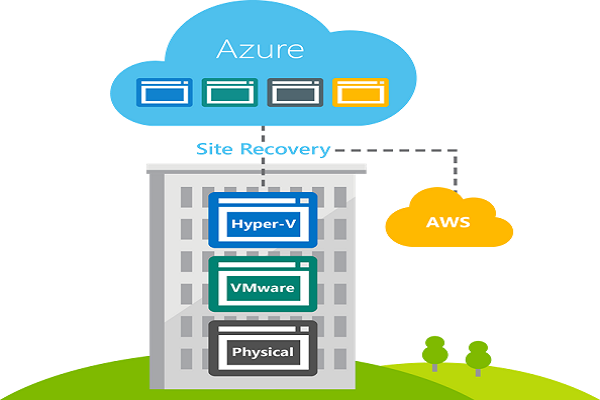As the cloud computing technologies continue to make their presence felt, the enthusiasm among businesses to adopt such technologies continues to escalate. This means that even businesses that were till recently hesitant to adopt the cloud are now looking at ways to migrate to cloud solutions as Azure. The migration to a cloud is not the same as taking up just any IT project. Because of the complacency attached to this approach, costs tend to shoot up. This is primarily because of reasons like the absence of proper training of staff, inability to use the best solutions offered by cloud architecture and not monitoring or controlling the staff seriously right from the beginning.
Azure refers to a cloud platform within Microsoft data centers. It also provides an operating system along with developer services. It will run applications locally and may be used for different types of scalable applications. To ensure a smart way to migrate to the Azure, it is necessary to be aware of the challenges which are faced in Azure migrations.
How to move to the Azure smartly:
While almost 52% of businesses will plan to shift their operations to the cloud, hardly a handful will take care to plan properly. Companies are so overwhelmed by the benefits of cloud computing that they take the plunge without thinking only to realize that the process is both long and expensive. In most cases, the companies are not able to handle the technical functions involves and they become susceptible to risks and performance failure. Migration is not only about data replication and it involves many important aspects. Even if you make the tiniest mistake, you may be forced to face unnecessary complications. So, when you do not have specialist staff, this process of migrating the whole infrastructure to a cloud may well cause a huge disaster.
You should definitely not transfer all the business systems together when shifting to the Azure. While the prospect may be tempting, it may lead to unwanted accidents. These may not only be irreparable but also very time-consuming. The transfer should therefore be well planned; you need to put down a proper list of steps and identify the key data components which must be moved first. You need to evaluate the risks so that there are no future security-related issues. You must engage in proper training and communication with the staff so that everyone is well-versed with his role in the entire operation. At this time, knowledge of the risks involved is a big help.
For migration to Azure, you need to ensure that there is proper integration of the apps. Your plan must take into account that every application will have integration points, whether it is payment gateways or external storage or web services or third-party vendors. These need to be considered to ensure that apps are scalable. When hundreds of apps have to be shifted to another data center, the process may be quite complicated. So, you can do a Proof-of-Concept beforehand to get a proper idea about how ready your system is for relocation. This means you must consider the existing apps, networking problems that you are likely to face, the support from the cloud provider etc. Your OS should also be compatible with Microsoft Azure. Experts in Azure or your vendor’s specialist staff can help you with this.
It is also wrong to assume that migration to Azure will automatically resolve other pending issues. In other words, instance of data loss and disruptions of service may well occur when the apps experience performance issues. With every change that is taking place in the processes or structures there is an issue of adjustment. So, some of the employees will have to learn new techniques for management. Business procedures may also have to be redesigned for migration. Software may need to be scaled and re-synced. In short, web developers will be too busy handling these to focus on anything else. However pressing business issues should not be neglected just because a business has to adapt to the cloud. This explains why it is recommended that you get experts to help you in migrating to Azure. Those in charge of managing this migration will have to know the unique attributes of Microsoft Azure.
Moreover, when you migrate to any IaaS platform such as the Azure, you must find out about the amount of bandwidth needed. In hybrid clouds for instance, there is high traffic between the remote cloud elements and locally-hosted elements. So, traffic that earlier would run on LAN now run on WAN and local bandwidth may not be sufficient.
While eliminating downtimes completely may be hard, you should prepare to deal with it. So, you must anticipate rightly how much downtime will be involved in every step and then make changes so that it has least impact.
When shifting apps to the cloud, you must also realize that there will be dependencies. Many connection configurations will be made invalid by this shift and therefore, a business needs to understand these before making the move.
Security is also a prime concern when moving infrastructure and apps to the cloud. Building a virtual private network having end-to-end encryption is recommended.
Besides making sure that databases are compatible even in the Azure, it is equally important to ensure that apps stay compatible too. So, ideally you should put these apps to test to identify incompatibility issues.
For Interesting Topic : Microsoft Azure – Ushering the Dawn of Digital Transformation






 Live Chat
Live Chat